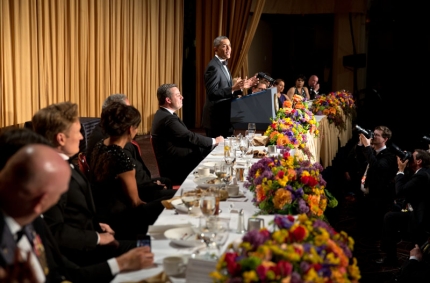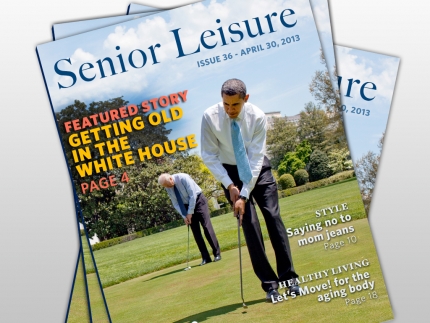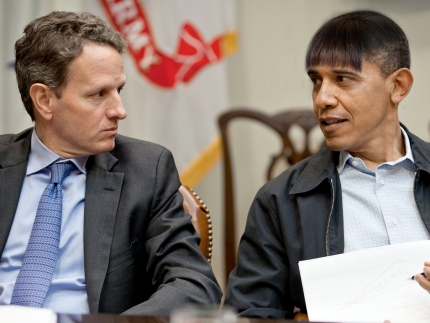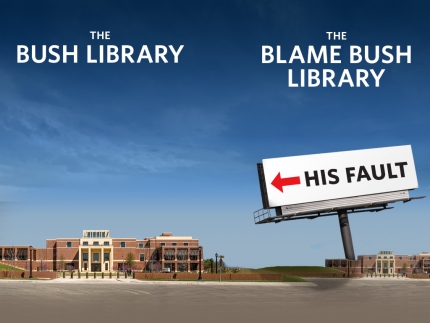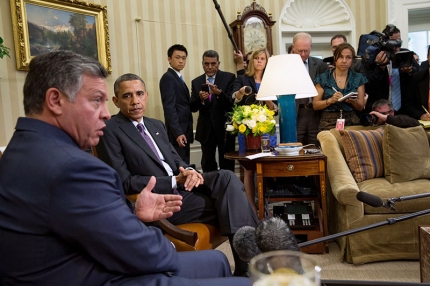Press Briefing by Press Secretary Jay Carney, 4/26/2013
James S. Brady Press Briefing Room
11:56 A.M. EDT
MR. CARNEY: Good afternoon -- or good morning -- or good noon to you all. Thank you for being here. As you know, we had a long and eventful day yesterday, but it is great to be back with you. I have no announcements to make, so I will go straight to your questions.
Josh.
Q Thanks, Jay. If President Assad sees the White House say we've concluded that they have used chemical weapons and then say, well, but we're not 100 percent sure, we're going to kind of hold off while we figure it out completely -- doesn’t that give Assad reason to doubt that the U.S. is serious when we say, don't cross this line, or else?
MR. CARNEY: No. Because what the White House has said is that it has been assessed by our intelligence community with varying degrees of confidence that the Syrian regime has used chemical weapons on a small scale in Syria, specifically the chemical agent sarin. This assessment is based in part on physiological samples. Now, we are working to establish credible and corroborated facts to build on this intelligence assessment in order to establish a definitive judgment as to whether or not the President's red line has been crossed, and to inform our decision-making about next steps.
But the President himself raised this issue, raised the profile of this issue, the seriousness of the prospect that the Assad regime would use chemical weapons or transfer them to a terrorist group last year, and the President has made clear from the beginning that this issue is gravely serious. Now that we have a growing body of evidence that suggests that we can say with varying degrees of confidence that he has in a limited way, or that the regime has in a limited way likely used weapons, we need to build on that.
It is absolutely the correct thing to do to take the exceptional work that our intelligence community does and continue to build information and put together a credible set of facts that can be corroborated that’s based on firm evidence that can be reviewed. And that is what we are endeavoring to do.
We are, of course, very much supportive of a United Nations investigation into this. The President led -- the United States led in calling for that investigation, and we continue to press for that investigation to proceed unhindered. We are also working independently and with our allies and with, most importantly, the Syrian opposition to assess credible reports of the use of chemical weapons, and to build evidence to support the assessments that have been made thus far.
Q And considering the seriousness of the implications, how much urgency do you feel to get to a definitive conclusion? If this investigation that you were just speaking about, for instance, were to run on for a number of months, is that something that President Obama would be comfortable with?
MR. CARNEY: The President wants the facts. And I’m not going to set a timeline because the facts need to be what drives this investigation, not a deadline.
The situation in Syria is and has been grave. The Assad regime has the blood of its own people on its hands. There has been enormous loss of life and enormous disruption. And you have seen us in a leadership role significantly increase our aid to the Syrian people through humanitarian assistance; significantly step up our assistance to the opposition, including nonlethal assistance directly to the Syrian military council as part of the opposition. And that is in reaction what we have seen in Syria.
But it is I think instructive to look at the past for guidance when it comes to the need to be very serious about gathering all the facts, establishing chain of custody, linking evidence of the use of chemical weapons to specific incidents and actions taken by the regime. And that’s, of course, what we will do because that’s the responsible thing to do.
Q And on Tuesday, from the podium you said that the U.S. had “not come to the conclusion” that there had been one of these attacks. But we’ve since learned that the White House has -- the administration has known about this for a number of weeks. So how do you square those two statements?
MR. CARNEY: What I said -- you’re talking about conclusion versus varying degrees of confidence that weapons were used. I talked about conclusion in the context of crossing the red line. And what I’m saying today, and what the White House said in the letters that were sent by the Director of our Office of Legislative Affairs to two senators on Capitol Hill, is that we are continuing to work to build on the assessments made by the intelligence community; that the degrees of confidence here are varying; that this is not an airtight case.
And that is entirely the responsible thing to do, as I think many observers of this, with a little historical perspective, have made clear in the last 24 hours.
Q Jay, yesterday a senior administration official told reporters on a call that all options remained on the table, which I think you’ve said before, too. What does that mean now in the context of these letters? And how far away would the United States be from making a decision regarding military force?
MR. CARNEY: Well, the second part of your question goes to timelines, and I'm not going to set any because we need to be about the business of assembling a credible set of facts -- assembling the evidence, assembling corroborative information. And that is what we're doing. And we are pressing for a United Nations investigation into this as well.
On the first part, all options remain on the table. The President has been clear about this. I have, as you noted. And that remains the case. I'm not going to speculate about what action we might take should we firmly establish that the red line has been crossed, but it is absolutely the case that all options remain on the table.
Q So what are the next steps then as you work on getting more information? Will there be more outreach to Russia and China about this in terms of diplomacy and getting them on board? What does the United States do next as you're looking for this evidence?
MR. CARNEY: Well, we work with our allies who have been working on this issue. We work with the Syrian opposition, who have obviously been helpful and can be helpful in providing evidence of chemical weapons use. We work with the United Nations and press for a thorough United Nations investigation. We also continue to provide significant assistance to the opposition and to the Syrian people who have been displaced and are in need of humanitarian aid because of the violence in Syria.
So it's a multifaceted approach that is obviously focused in one sense on this issue of chemical weapons use, but is also, more broadly, about our policy of helping the Syrian people rid themselves of the Assad regime and put themselves in a position for a better future.
Q And on one other topic, what does the White House think of the FAA legislation? And when will the President sign it?
MR. CARNEY: Well, obviously it has to arrive here before he can sign it, so I don't have a timetable for that. The President would sign this if it's passed. And it will be good news for America's traveling public if Congress spares them the unnecessary delays that we've seen that resulted directly -- as the Secretary of Transportation warned two months ago from this podium, would take place if the sequester were implemented.
The furloughs were unavoidable. And you had a lot of Republicans in particular who insisted that flexibility existed, that this administration and the FAA itself could implement, and we made clear that that's not what the law said. And as I said the other day, you had members of Congress who collectively wrote the law, voted for the law, but had not read the law. And what the action taken by Congress now -- an act of Congress that is underway to fix this specific and narrow problem with the FAA -- proves is that it requires Congress to act to deal with this.
The problem is that this is just a Band-Aid solution. The funding associated with the furloughs at the FAA is I think $253 million. That's one-half of 1 percent -- one-half of 1 percent of the sequester. And it would be a welcome development if members of Congress, if Republicans who celebrated the sequester as a political victory -- a home run, a tea party victory -- would show even a portion of the concern they showed about these real problems with flight delays for the families whose children have been kicked off of Head Start, for the seniors who have lost access to the Meals on Wheels program, for communities hard hit by the cuts across the board -- mindless cuts in our defense budget, communities that depend on defense industries and on military spending.
We haven’t seen that. It would be welcome if we did, because the point of the sequester was that it was mindless, it was written in a way never to become law, written by and agreed to by both parties so that it would never become law because it would have these effects. It was designed to be terrible and onerous. And lo and behold, whether it was a tactical political victory for the tea party or not to embrace it, these effects are happening.
Step back and look at the big picture and you still see the CBO estimate of 750,000 jobs that would be lost if the sequester were to run its full course, the fully half a percentage point of GDP that would be cut from our growth.
Congress has the power, as it did in this narrow case -- Congress has the power to do the responsible thing, work with the President towards a balanced deficit reduction plan that invests in our economy, helps it grow, eliminates the sequester entirely, replaces it with sensible deficit reduction, which was always the plan, and then we can move forward together as a nation. That remains within Congress’s power to do. And that’s why the President has been engaged with lawmakers of both parties in conversation about how we can find common ground and move forward on these specific budget issues.
Q Jay, how is it fair or right or just that these kids on Head Start get their cuts, that these cuts go into effect at the Defense Department, and it’s tough luck, but when a bunch of business travelers start belly-aching because their flights are delayed because of these furloughs at the FAA, that they get one of the fastest pieces of legislation to move through Washington in recent memory? How is -- why doesn’t the President take a stand against that?
MR. CARNEY: You could have thrown in members of Congress who need flights home also. But the fact is the delays --
Q Why doesn’t the President stand up against that?
MR. CARNEY: The delays are a problem for not just business travelers and members of Congress, but for many Americans, and that’s a real negative consequence of the sequester. But your point is excellent. And we call on Congress to show as much concern for others who are being harmed by -- other Americans, hardworking, middle-class families who are being hurt by this; hardworking communities that depend on defense industries and should not have been dealt this blow of arbitrary cuts that cause furloughs and layoffs and job terminations because Congress decided -- the Republicans decided -- and they said it publicly, you know what, everything we said about how terrible this sequester is going to, never mind; it’s a victory; it’s a tea party victory.
Q So why is the President making an exception, then, for the air travelers?
MR. CARNEY: The President believes it’s good news to eliminate this problem. But as I’ve said and he believes, this is a Band-Aid covering a massive wound to the economy. This is $253 million out of an $80-plus billion-over-seven-months problem. And Congress should do the responsible thing and stop dealing with these issues from crisis to crisis, and simply engage in a discussion about how we can eliminate the sequester entirely through balanced deficit reduction.
In the end, this is a choice between special interest tax breaks, closing loopholes in the tax code that the well-off and well-connected enjoy but average Americans can’t and don’t, on the one hand, versus these harmful and unnecessary cuts on the other. And if they would move forward with the kind of balanced deficit reduction that was under discussion late last year that includes revenue earned through tax reform along the lines that Speaker Boehner openly talked about late last year, and couple that with tough choices and entitlement reforms that also produce savings, we can get somewhere productive here for the economy and for the American middle class.
Q And just to follow up on Syria. Yesterday White House officials said on that conference call with reporters that there is a need to be careful, because look what happened with Iraq and the weapons of mass destruction that didn’t exist in Iraq. But in Syria, you do have some evidence that chemical weapons were used on the people there. Isn’t there a concern that you might be showing leniency when it comes to the use of weapons of mass destruction?
MR. CARNEY: Absolutely not. And the fact is that we do have some evidence and we need to build on that. We do have varying degrees of confidence that -- in the assessments that are being made that chemical weapons were used in a limited way, but we need to build on that. And the precedent you cite I think is a significant one, and it simply stands to reason that the assessments that we make, the intelligence community makes, are extraordinarily valuable and they do excellent work, but they are building blocks towards a broader objective here, which is the accumulation of concrete evidence -- evidence that can be corroborated, evidence that can be presented and reviewed, and then acted on if the conclusion is that a red line has been crossed.
I want to move around a little bit because I noticed that for several times in the last few weeks, we’ve spent about 45 minutes in the front row here. Yes.
Q On Syria, just to follow up -- first of all, what exactly does “varying degree of confidence” mean? And second is, there are several claims on the ground that the chemical weapons were used. Has the U.S. government in any way been able to investigate any of these claims on the ground with the rebels? And the last question is, just yesterday, again, there were some senators who started calling for a no-fly zone in the country. Have these new developments changed enough your views to take additional steps?
MR. CARNEY: Well, I'd say a few things. We are, of course, working with the Syrian opposition on this effort. I'm not going to get into specific reports and our assessments of the specific reports of instances of use -- the use of chemical weapons, but simply to say that the Syrian opposition is a key component in an effort to gather more information and establish facts and answer questions about chain of custody and things like that.
Secondly, I think the comments that you refer to coming from Capitol Hill go to the question of responses. And we're in the process here of gathering evidence to establish whether or not a red line has, in fact, been crossed -- establish in a way that is corroborated and verifiable and reviewable. And that’s a very important task.
We are not in a static position here. We, as I mentioned earlier, have been significantly increasing and broadening the scope of our assistance to the opposition, as well as, as you know, committing significant resources to the humanitarian effort for the Syrian people. And we are working both with the United Nations but with friends and allies and partners who are concerned about the Syrian problem to help bring about a change there that allows the Syrian people a chance at a better future -- a future that obviously has to exclude a tyrant who has been killing his own people now for two years.
Ari.
Q In the wake of the Texas and Boston explosions, some Democrats have been making an argument about the role of government, and the President hasn't. And I wonder if he believes that more regulations could prevent what happened in Texas; that more funding for first responders would make it easier to deal with things like what happened in Boston. And if he does, why hasn't he made that argument?
MR. CARNEY: Well, I think that we have to step back for a moment and note that, regarding the tragic explosions in West, Texas, that’s a matter under investigation. We do not know concretely what the cause was. That is under investigation. The response by first responders in Boston I think has been noted to have been remarkable, and justifiably so. So I'm sure that a lot of evaluations, as is wholly appropriate, will be made as time passes about lessons we can learn in each instance -- obviously very distinct events -- but in each instance. And that’s the way it should work.
But I don’t think we’re at the stage yet that your question suggests in terms of making those judgments. The President is focused on, as he was yesterday, grieving with the families of victims of the fertilizer plant explosion. That was an incredibly powerful service that he attended, and if you didn’t join us or didn’t watch it, it really is worth doing because it was incredibly powerful. And not least because of the remarkable bravery and commitment to community that these almost entirely voluntary first responders demonstrated by running towards a situation that all of them had to know was one that would put them at great risk on behalf of their fellow citizens. And he met with families, and he met with local and state officials to talk about that.
And we’re obviously in still the early phases of investigating everything around the Boston incident. So the questions are certainly valid, but I don’t have specific responses for you now.
Q Do you think it’s somehow inappropriate or distasteful to use these tragedies to make an argument about the role of government?
MR. CARNEY: I mean, I haven’t had that discussion with him. I just think that the focus now is on the areas that I just discussed.
Jon.
Q Jay, did the President mean it when he said use of chemical weapons would be a game changer in Syria?
MR. CARNEY: Yes, he did.
Q So what does that mean? And what’s a red line? What are we talking about here?
MR. CARNEY: The President made clear that the use of or the transfer to terrorist groups of chemical weapons by the Assad regime would be crossing a red line. And he retains all options to respond to that.
Q Including military force, including military strikes in Syria?
MR. CARNEY: All options. All options. And there are many tools that a President has available to him in this kind of situation. So they include all options, including the ones you mentioned, but there are many other options.
And that’s not to suggest one direction or the other; simply to say that often the discussion -- when people mention all options are on the table, everyone just talks about military force. And it’s important to remember that there are options available to a Commander-in-Chief in a situation like this that include but are not exclusive to that option.
Secondly, I'm not going to speculate about actions the United States may take should it be firmly established that a red line was crossed, but I will confirm that he was very serious about that. He obviously went out of his way to make that point from this very podium because of the seriousness of it, and I think it demonstrates the fact that the United States is focused in particular on this issue, and appropriately so.
Q Given that he got here in the first place as somebody who questioned intelligence and called for resisting the clamor to go to war over intelligence about weapons of mass destruction in this same region, does it make him a little more skeptical about the intelligence he's receiving now, a little less likely to take it at face value?
MR. CARNEY: He has enormous faith in our intelligence community, but he also believes that the proper use of intelligence in a case like this is to have it be a component of, but not the only source, of your decision-making process. It's not -- as I was saying before, this is an important building block towards gathering the evidence that needs to be gathered in a situation like this.
And the precedent you mentioned is a significant one, but it's simply -- setting aside that one precedent, it's important just to acknowledge that assessments are not -- they're based in part on facts, but they're not solely facts. They're the judgments of professionals. They are not in and of themselves policy decisions. And that is what the President -- a President makes the kind of decisions that are made in this situation, and he or she makes them based on -- should make them based on a broad array of information.
Major.
Q To continue that conversation, I know you believe, and you said the President believes, that the red line is a reasonable standard and that factual evidence must be behind it to support it. I'd like you to address some concerns that the Syrian opposition has expressed, that some in Congress have expressed, that the volatility and the chaos in the civil war itself may make it practically impossible to obtain that kind of definitive proof, making the red line more rhetorical than practical.
MR. CARNEY: The fact is we have some evidence. That is what is reflected in the letter that was sent to two senators, reflected in the conversations that some of you had with government officials yesterday. And we have been able to gather some evidence that undergird the assessments that are being made. But we are not done with the process by any means. We are building on that. And we are able to not just press for a United Nations investigation, which is essential, but to work with our friends and allies and the Syrian opposition to procure, share, and evaluate additional information associated with reports of the use of chemical weapons so that we can establish the facts.
So the answer to your question is the concerns that you've mentioned are real, but it’s also the case that we are able to work with our friends and allies and the Syrian opposition to gather more facts to help establish a set of facts and evidence that can be corroborated. And that’s what we're setting about to do.
Q Will the President commit to, if, in fact, the red line is crossed, whatever happens will be done multilaterally, not unilaterally?
MR. CARNEY: I will not speculate about what action he might decide to take in the event that that assessment is made. That’s too many steps forward. I will simply say that he will --
Q He won't commit to doing it in concert with allies? The United States may act unilaterally?
MR. CARNEY: Well, obviously, as a general principle -- the United States retains the ability to act unilaterally as a general principle. But on this case, I'm not going to make a speculative judgment about what decision he might make should that assessment and that decision or conclusion be reached.
Q Is the FAA legislation -- now that the administration has endorsed and looked at this process that seemed to take some unexpected turns -- a model for resolving other issues related to sequestration?
MR. CARNEY: No, because of the point --
Q How many --
MR. CARNEY: I'm not going to attach a number, how many times you can do it. But the fact is it's a drop in the bucket. It's a Band-Aid over -- I think it's kind of a gross metaphor -- but a big wound.
The fact is this is a small amount of funding compared to the overall sequester. It's $253 million. There was an ability, because of unobligated funds available, that could be transferred only through an act of Congress -- not through administrative action, because it was not legal otherwise. And this is a one-off case, if you will. And the question points to the overall problem here, which is that the sequester itself cannot be finessed. It is having negative consequences around the country.
Q I understand the practical, governmental curiosity that people who are feeling the effects of sequestration might have. If someone were to present to the administration something that could deal with access to cancer funding, as an example -- as an illustrative example only -- that found money or that was a one-time Band-Aid thing, would the administration be open to that? I'm saying there will be creative people in Congress who will try to find ways to deal with individual things, and I'm trying to figure out if that's a worthwhile endeavor for them.
MR. CARNEY: A worthwhile endeavor would be a decision to eliminate the sequester entirely. The effort expended --
Q But absent that?
MR. CARNEY: -- should be expended on that because that would deal with the whole problem and the broader impact of the sequester on our economy and on job creation.
Given how Congress deliberates and the disagreements that exist on a variety of narrow, specific issues, you can imagine how little would be accomplished if that were the path that were chosen. The right path is simply to come to the agreement on principle that everybody used to agree on, which is that the sequester should never be implemented and we need to eliminate it, and we need to eliminate it through balanced deficit reduction. That was the way it was designed. That was the charge given to the super committee -- avoid this terrible thing by coming up with a bipartisan agreement on deficit reduction.
Q But related to Jim's question, if someone were to come to the administration with a solution for food stamps, for example, or Meals on Wheels, the administration would say, forget about it?
MR. CARNEY: I'm not going to speculate about that because it's not remotely practical. I would certainly welcome and be pleasantly surprised by concern on the part of Republicans for kids who have been thrown off of their Head Start programs, or seniors who aren't receiving their Meals on Wheels. That would be a positive step. But the fact is the way to deal with this problem is to rid ourselves of it entirely through responsible governing. And that is what's been absent on Capitol Hill of late.
Q But given Congress's willingness to pass this FAA bill, is there concern in the White House that this is the approach Congress is going to take going forward, just slicing off these individual pieces?
MR. CARNEY: I think I've tried to address this. It is not credible to imagine that you can mitigate the damage done to our economy in a piecemeal, Band-Aid fashion. We are pleased that we can take this action to alleviate the problems caused for Americans traveling at our airports. But this is a Band-Aid solution. It does not solve the bigger problem. And it is impractical to expect that all of the negative consequences of sequester can be solved this way.
The right way to do it, the responsible way to do it, the way that I think Americans across the country when they have time to even consider this issue in their busy lives would want Congress to take is to simply eliminate the sequester, to go about deficit reduction in a responsible way; to concede that when you called it -- “you” being random Republican member of the House -- a tea party victory, you weren’t really thinking about how it hurt average Americans. You were thinking about politics inside the Beltway. You were thinking about whether or not you’re going to have a primary, or how this would affect your stature in the leadership.
And that’s not what the American people sent you here to do. They sent you here to solve problems in a common-sense way. And instead, by allowing the sequester to be implemented, Congress has caused problems for average Americans -- at airports, in the homes of middle-class folks who are struggling to get by, in military communities around the country -- Congress has caused problems, made things worse unnecessarily by adopting a policy they themselves decried only a few months ago.
Q How soon after the President signs the bill will the controllers and the FAA be back -- controllers be back at work?
MR. CARNEY: I would have to ask you to check with the FAA. I’m not sure how that process will work.
Bill.
Q At the risk of piling on, I think the problem you're having is that aren’t you contradicting yourselves and aren’t -- and sending the wrong message by saying the sequester is bad, we’ve got to address it across the board, but we’ll sign this one bill carving out this one exception? And aren’t you inviting more exceptions?
MR. CARNEY: Bill, I appreciate the question, but there is no way for this practically to be done except in a broad action by Congress to eliminate the sequester.
Q Why would he sign this bill? That’s my question.
MR. CARNEY: Because this is causing unnecessary harm to travelers around the country, and this is a specific case where an act of Congress could take unobligated funds from one account and apply them, a relatively small amount compared to the size of the sequester, to address these furloughs.
But it is exactly what I’ve been saying -- a Band-Aid solution that does not solve the bigger problem.
Q But don’t you accept that somebody is going to come down the road tomorrow with another -- it could be small business, it could be farmers, it could be, as Major said, cancer patients -- somebody else is going to come up with another -- the same argument.
MR. CARNEY: Bill, they may. What I’m saying is that this is not the answer. We’re very concerned about the effects that these furloughs would have on air travelers, so much so that the Secretary of Transportation came here two months ago and warned the American people about it. It was very amusing to me to hear members of Congress say, the administration blindsided us, they didn’t say this was happening -- and then, fortunately, some very worthy producers at television stations found the video of the Cabinet Secretary telling the American people, and Congress, and you that this would happen. And it behooves the members of Congress to read the laws they pass -- preferably before they pass them, but sometimes after.
Wendell.
Q Some analysts think that the limited use of chemical weapons in Syria were -- two occasions last month suggest that perhaps it was ordered by one of Assad's generals, not Assad himself. And that suggests that all of the chemical weapon stocks may not be in Assad's control. Is that, too, a red line?
MR. CARNEY: I'll say two things about that. One is we still believe, based on the information that we have, that the stockpiles of chemical weapons in Syria are under the control of the Syrian regime.
Two, because of that, Assad is responsible for the disposition of those chemical weapons. And it is his responsibility, first and foremost, not to use them or to transfer them to terrorist groups, but to secure them and make sure that they are not used by anybody else.
So that’s all I can really say about it. That’s our assessment at this time.
Q Senator McCain says that this push for proof may be an excuse not to act at all. How do you respond to that?
MR. CARNEY: I think that it is the responsible thing to do. It is what the American people want and expect their leaders in Washington to do on a matter of such seriousness, to ensure that we have gathered all the facts; that we build on the quality work done by our intelligence community, and work with our allies and the Syrian opposition as well as the United Nations to assemble a credible set of facts that can be corroborated and can be reviewed before we make decisions about whether a red line has, in fact, been crossed, and before we make decisions about what action to take if that’s the case.
Q Jay, there are bipartisan calls for action on -- Senator Dianne Feinstein has said the red line has clearly been crossed. They seem to think that this intelligence is more reliable than the White House at this point. Why is there a discrepancy? Why can Senator Dianne Feinstein say with such clarity that she believes a red line has been crossed, and yet the White House --
MR. CARNEY: Well, I think you can ask individual lawmakers for their assessments and what they're based on. What I can tell you is that our intelligence community, which is providing the same information to members of Congress, assesses with varying degrees of confidence that the Syrian regime has used chemical weapons on a small scale in Syria, specifically the chemical agent sarin, and this assessment is based in part on physiological samples, as we talked about yesterday.
Now, we are working to establish credible and corroborated facts to build on this intelligence assessment. That is the right and responsible thing to do. That is what we should and I think the American people would expect us to do in a circumstance like this.
Q Just to go back to Major's point -- Syria hasn't even let U.N. inspectors in, so how do you expect to get this answer?
MR. CARNEY: Again, we call on the Assad regime to cooperate with the United Nations investigation that they said they wanted, but we are not relying on the United Nations alone. We are working with our allies and our partners, and we are working with the Syrian opposition to gather information and facts to assess credible reports of the use of chemical weapons, and we will continue to do that. That is, again, the right path forward.
Q Where does Russia factor into this? I know you were asked about this, but is that part of the strategy moving forward, to try to get Russia engaged at this point so the United States doesn’t have to get engaged?
MR. CARNEY: We have made clear in the past about our disagreements with Russia on the matter here and on Syria in general. There have been Security Council votes that reflect our profound disagreements with the Russians on this. But we continue to discuss with the Russians and others the nature of the Assad regime, the brutal assault that Assad has waged against his own people, the massive harm done to the Syrian people, and the issue --
Q Well, is Russia the last, best option?
MR. CARNEY: I'm not going -- again, we will continue to work with the United Nations and members of the Security Council, but we will also proceed, as I just described, with allies and partners and the Syrian Opposition in our investigation here into the reports of -- the credible reports of chemical weapons use.
Q And just one on immigration, Jay. Representative Goodlatte has said he plans to introduce immigration reform in pieces. Would the President support that approach?
MR. CARNEY: I’m not going to speculate about bills that haven’t been written or submitted. I will say that the President has made clear for quite some time that we need to reform our immigration system in a comprehensive way, and that includes enhanced border enforcement. It includes improving our legal immigration system. It includes holding businesses accountable. And it includes a clear path to citizenship. And those are sort of the four corners of what a comprehensive immigration reform bill would look like. It is also reflected in the legislation proposed by the Gang of Eight in the Senate.
These principles are very important. And I think that it -- we have seen this effort for a while here now in Washington, and we have seen it move forward but not succeed yet. But I think what has become abundantly clear to everyone here who has followed it or worked on it, it will only get done if it is done in a broad, comprehensive, and bipartisan way.
The President spoke about this yesterday at the ceremony at the George W. Bush Presidential Library and Museum. He credited, appropriately, President George W. Bush for his support for comprehensive immigration reform. And I think that reflects the fact that a consensus or a bipartisan consensus was building, and at this time is growing even more in Washington and across the country behind the need to do this. And the President will continue to work with the Congress to try to get this done.
Zach, and then Donovan.
Q Jay, it’s true that many Americans are affected by the flight delays. It seems that people of means -- businessmen, members of Congress -- will be most affected, traveling all the time. So what I don’t understand is why the President didn’t say, okay, Republicans are agreeing to this, but you’re going to have to do something for the very poor being affected by the sequester. If you’re going to fix this for people who fly, we’re going to demand that something be done for Head Start, for seniors, for -- something for the most vulnerable who are affected, too.
MR. CARNEY: The President does insist that Congress take action to eliminate the harm by the sequester. And the harm -- so you’re suggesting we should hold hostage American travelers to Congress’s refusal to act?
Q Well, I want to know why you’re not using that leverage.
MR. CARNEY: The fact is, Zach, we support an effort here underway in Congress to take care of this problem. And we are highlighting, as I am today, the fact that it is a Band-Aid solution that deals with one-half of 1 percent not even, of the sequester, and that the responsible and right thing to do by Congress is to address the entire sequester and the harm that it’s doing to families across the country and communities that depend on defense industries by eliminating -- by reversing themselves and their folly when they declared it a -- they, the Republicans, in this case -- declared it a victory, a great thing for them politically and the tea party.
I don’t think Americans who have suffered under this, either because they’ve been laid off or furloughed, feel that way. And I’m sure that families who have been dealing with the fact that their child is no longer in Head Start [don’t] feel that way. I’m sure that Americans who have been delayed in airports for hours [don’t] feel that way -- unless they’re just devoted tea party members, so even as they’re sitting on the tarmac for three hours they can say, well, this feels like victory. I doubt it.
So the Congress needs to do something about it. They need to take action.
Q Why not wait a week or two more and see -- and say to Congress, we’re not going to sign this bill unless you do something that really protects the most vulnerable ones in society and then we can deal with people who are --
MR. CARNEY: We’re calling on Congress to do that. We’re not going to -- I think you’re imagining leverage here, Zach, that is about political gamesmanship. We’re about trying to get stuff -- getting things done here on behalf of the American people.
Donovan.
Q Thanks, Jay. Two quick questions on Syria, following on -- you said earlier that the administration really is trying now to build a case that --
MR. CARNEY: Well, let me clarify. We’re trying to find out if there is, in fact, a credible, verifiable case.
Q Right. And so who would that case be presented to?
MR. CARNEY: Again, you’re getting -- you’re taking me beyond where we are, speculating about what the next steps would be. Most importantly, we have to take the evidence that we have and the varying degrees of confidence that we have about the assessment that chemical weapons have been used, and build on that. And that’s what we’re going to do. And that’s what we’re going to do not just alone, but working with our allies and partners and the Syrian opposition, and as we, in concert with that action, work to press the United Nations’ investigation forward. What happens after that obviously depends on what conclusions are made and what facts are gathered.
Q Okay. And then you said also that the administration believes that Assad has custody and full responsibility for the weapons. So any verified use of the weapons, no matter who used them would be -- he would be the responsible party. Is that correct?
MR. CARNEY: Without getting into a specific instance that is speculation at this point, it is a fact that he is responsible for the stocks of chemical weapons that are under control of his regime. But, again, I don’t want to speculate about the judgments we would make based on verified use of chemical weapons that we’ve been able to verify and have a set of credible facts to back up because we’re still in the process of gathering those facts.
Q But you’ve done physical tests --
MR. CARNEY: We have said that we have physiological samples. But we do not have all the information we need to be more than -- to have more than just varying degrees of confidence that this has happened. And we need to be able to have a credible set of facts that are corroborated and that are reviewable, and that is obviously what we’re trying to establish now.
Q Thanks, Jay.
MR. CARNEY: Victoria, one more in the back.
Q There are about 100 detainees in Guantanamo on a hunger strike now. It’s a bit of a mess. Senator Dianne Feinstein is saying that the low-level Yemenis should be repatriated. Do you agree with that?
MR. CARNEY: Well, I can tell you that we continue to monitor the hunger strikers at Guantanamo closely. And this is something obviously that the Defense Department has the most specific information on.
Here at the White House, the President remains committed to closing the detention facility at Guantanamo Bay. Some progress has been made under this administration and under the previous administration. However, Congress has enacted and renewed legislation in order to foreclose our ability to close the detention facility -- legislation which restricts our experienced counterterrorism professionals from exercising their best judgment as to what the most appropriate disposition is for the individuals held there.
We, as you know, have been -- there was a process and continues to be a process that assesses the detainees at Guantanamo, and that process is ongoing. But a fundamental obstacle here to closing this detention facility -- which is so clearly, the President believes and his predecessor and numerous others, including military leaders, believe is in our national security interest to do -- the obstacle remains at Congress. But we’re going to continue to press forward in trying to deal with this problem.
Q Well, Senator Feinstein is saying that with the change in leadership in Yemen, it would be okay now to send those Yemenis back to that country because there is much stronger leadership against al Qaeda. How do you feel about that?
MR. CARNEY: Well, I think those are assessments that are made by professionals who look at both the situation in Yemen and at the detainees. But I don’t have any new information or announcements to make regarding those detainees.
Q Jay, any week ahead?
MR. CARNEY: I do have a week ahead -- thanks. The schedule for the week of April 29th, 2013 is as follows: On Monday, the President will deliver remarks at the National Academy of Science’s 150th anniversary.
On Tuesday, as part of the Joining Forces initiative, President Obama, Vice President Biden, First Lady Michelle Obama and Dr. Jill Biden will make a significant employment announcement for veterans and military spouses. This event will take place here at the White House.
On Wednesday, the President will attend meetings at the White House.
On Thursday morning, the President will depart Washington, D.C. for his visit to Mexico and Costa Rica. This trip is an important opportunity to reinforce the deep cultural, familial and economic ties that so many Americans share with Mexico and Central America. While in Mexico, the President looks forward to meeting with President Peña Nieto. The President welcomes the opportunity to discuss ways to deepen our economic and commercial partnership and further our engagement on the broad array of bilateral, regional and global issues that connect our two countries.
On Friday afternoon, the President will depart Mexico for Costa Rica. While in Costa Rica, the President looks forward to the opportunity to meet with President Chinchilla as well as heads of state of the other Central American countries and the Dominican Republic who the President has graciously offered to host. The trip will be an important chance to discuss our collective efforts to promote economic growth and development in Central America and our ongoing collaboration on citizen security.
On Saturday afternoon, the President will depart Costa Rica and return to Washington, D.C.
On Sunday, the President will deliver the commencement address at the Ohio State University. He will return to Washington, D.C. later that day.
Thanks, all.
Q Jay, can I get a quick follow?
MR. CARNEY: Sorry, all done.
END
12:45 P.M. EDT

